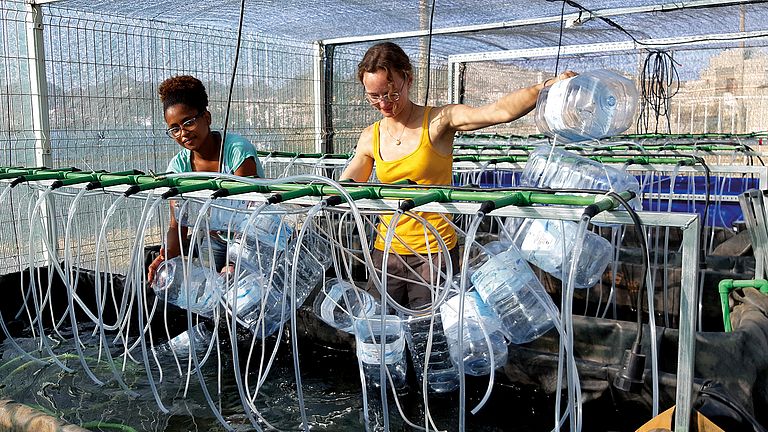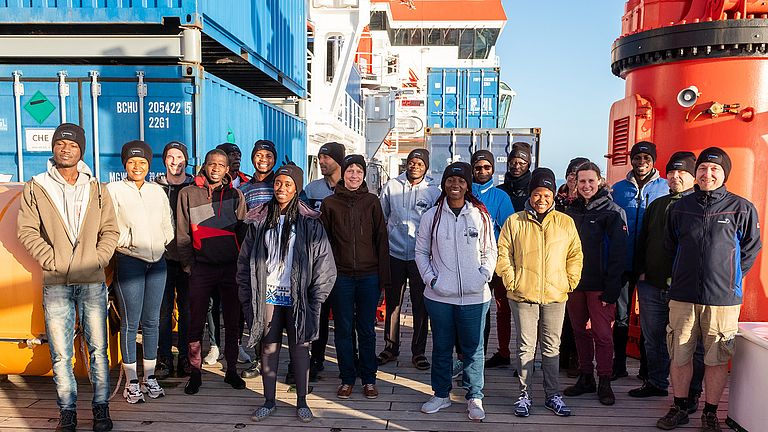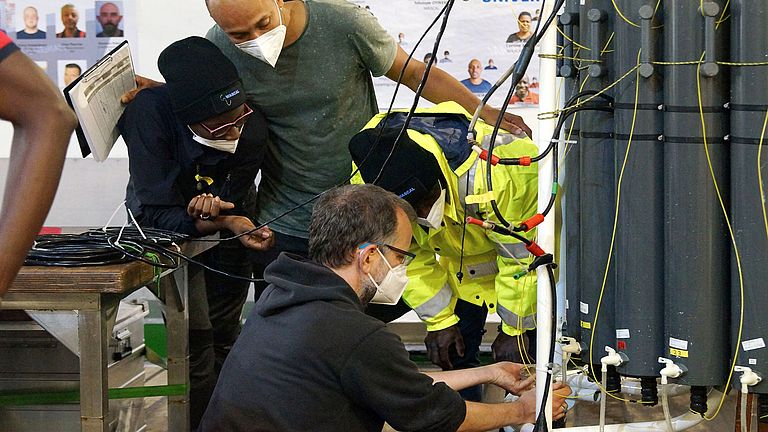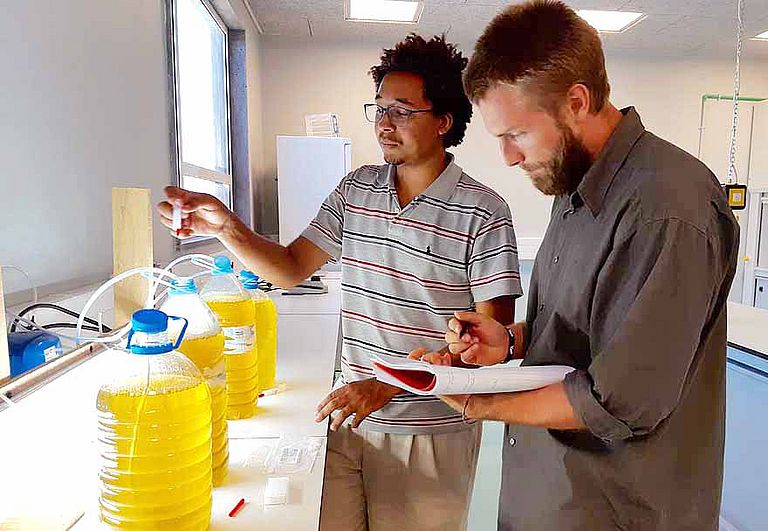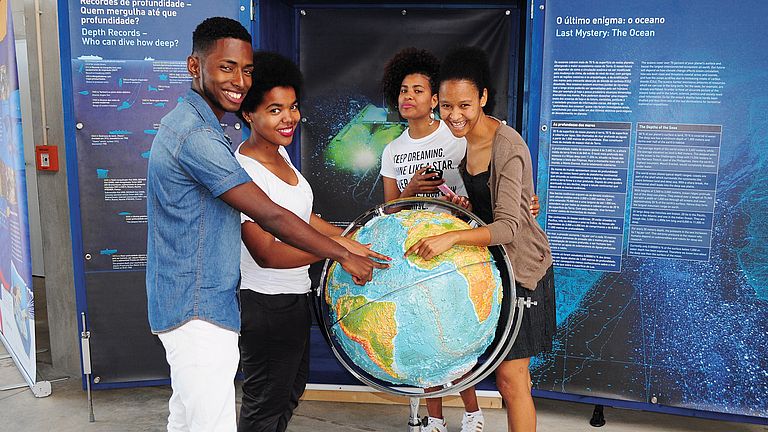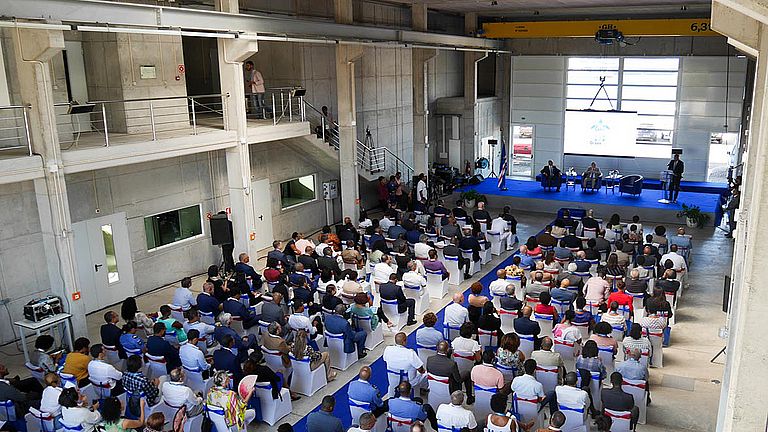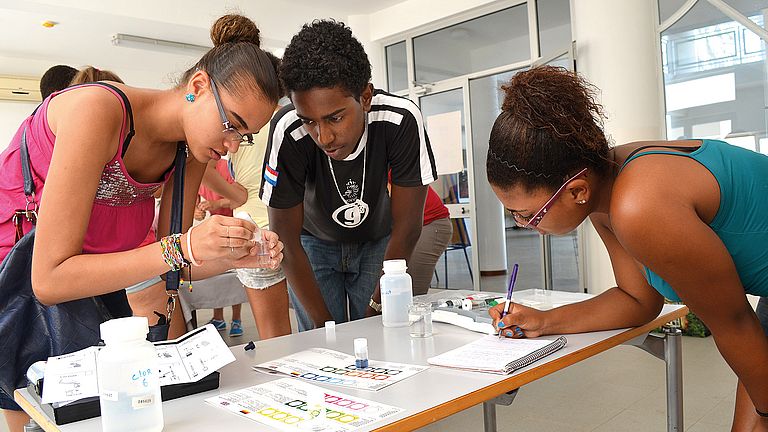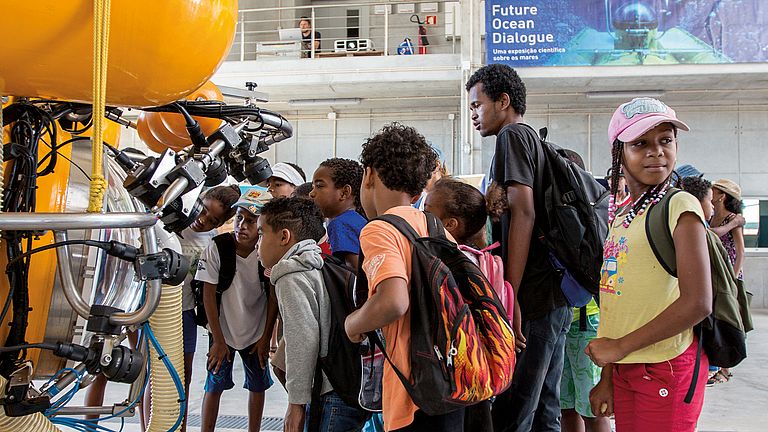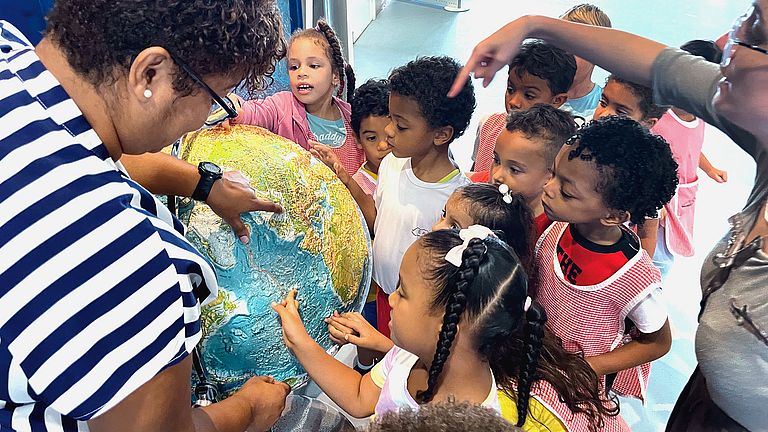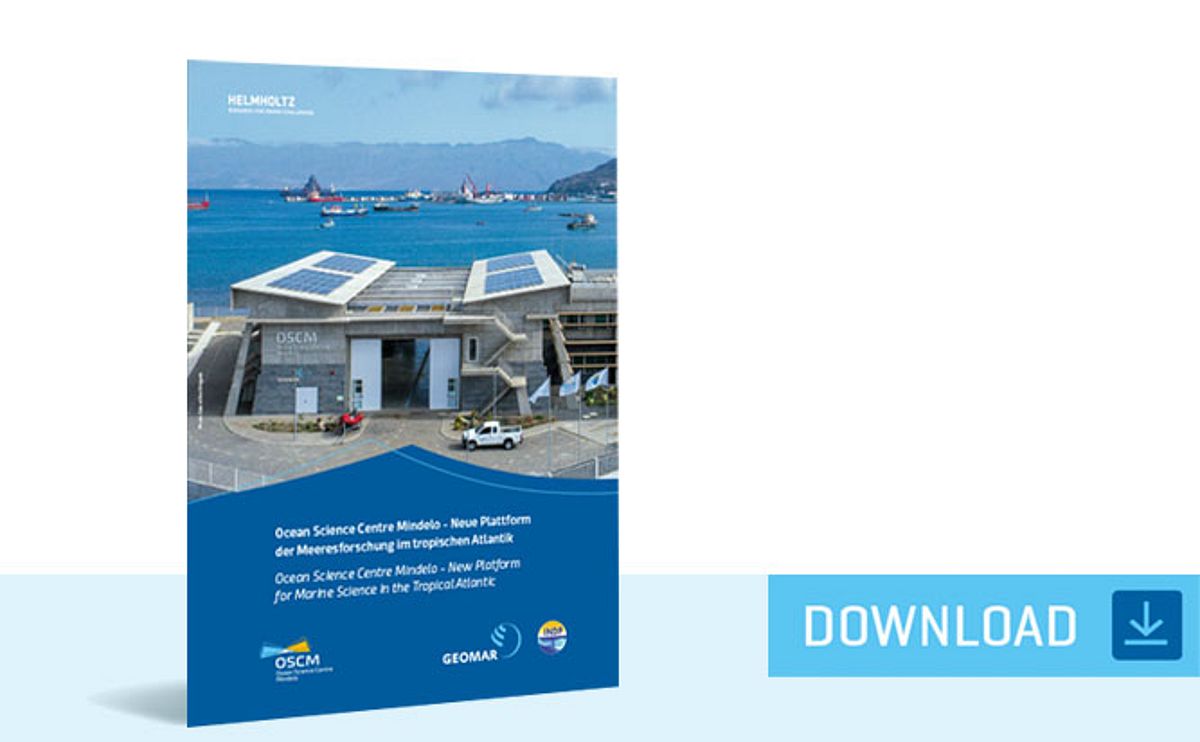Cordula Zenk
Cape Verde Coordinator at GEOMAR
Tel: +49 431 600-4209
E-mail: czenk@geomar.de

Hub for Marine Research and Knowledge Exchange in West Africa
The Republic of Cabo Verde, located 600 kilometers west of the African mainland in the open Atlantic, depends on an intact marine environment and sufficiently available resources from the sea. In a country without mineral resources and with only a weakly developed industry, knowledge about the seas and its opportunities and risks is of particular importance. Therefore, education and knowledge exchange are of enormous social importance, especially here. In partnership with the Cape Verdean Universidade Tecnica do Atlantico (UTA) and the Christian-Albrechts-Universität zu Kiel (CAU), GEOMAR, OSCM, the Instituto do Mar (IMar) and other associated partners have established academic programs to strengthen and develop local and regional scientific and technical capacities.
In the long term, this will create a hub for ocean science and knowledge exchange on Cape Verde. The aim is to link local stakeholders with local and international researchers and various experts from society, politics, business and industry. Issues relevant to Cape Verde are to be analyzed from different perspectives and solution-oriented paths to applied implementation are to be jointly identified. The OSCM sees itself as a platform for dialogue, which wants to bring the relevant actors to a round table in order to learn from each other at eye level, to exchange knowledge and to develop solutions.
Scientific Education
WASCAL-CV
WASCAL, the West African Science Service Centre on Climate Change and Adapted Land Use, comprises eleven countries of the Economic Community of West African States (ECOWAS). Each country contributes a graduate program based on its strengths and expertise. WASCAL is funded by the German Federal Ministry of Education and Research. Within this framework, since 2019, the Cabo Verde Graduate School on Climate Change and Marine Sciences (WASCAL-CV), in cooperation with UTA, OSCM and IMar, offers the master program Climate Change and Marine Sciences. The new two-year master's program for students from eleven West African countries will train the next generation of marine experts in regionally relevant marine science topics. Students will benefit from a dynamic research environment in terms of expertise and technology contributed by international partners. WASCAL-CV is a project of the UN Ocean Decade
WASCAL Floating University
In addition to lectures, laboratory and field work, another part of the Master's program consists of training at sea. For example, in February 2022, 12 WASCAL-CV students participated in a multi-week academic training and research cruise on the research vessel MARIA S. MERIAN during expedition MSM106. The curriculum of the first WASCAL Floating University from Mindelo to Bremerhaven included lectures on topics such as ocean observation and marine ecology as well as practical research such as measurements of ocean surface properties. Next Floating Universities are planned for 2023, 2025 and 2026.

GAME Team Cabo Verde
Furthermore, the Universidade Tecnica do Atlantico (UTA) and GEOMAR cooperate in the international master program GAME - Global Approach through Modular Experiments. Each year, a team of two students conducts a six-month experiment at OSCM. Up to eight binational student teams thus work in parallel on current ecological topics at different locations around the world and are accompanied by researchers from the GAME partner institutes. After completion of the experiments, the teams meet in Kiel to compare their results. Applied research and academic education on pressing ecological issues, combined with a worldwide network and work experience in different cultural and scientific environments, thus forms a unique basis for the students' further research careers.
Dialogue and Knowledge Exchange
In view of the size and importance of the world's oceans, communicating knowledge and passing on experiences of marine and climate research is playing an increasingly important role. However, this must not be limited to the world of science, but must encompass society and start with its youngest members. Human activity has already caused detectable and potentially consequential changes such as warming, acidification, pollution and overfishing of the world's oceans, which can only be addressed by raising awareness of the fragile marine ecosystem in a whole-of-society context.
GEOMAR, IMar and the Universidade Tecnica do Atlantico (UTA) have made it their mission to raise awareness for marine research and to transfer knowledge to the population through various activities. The Christian-Albrechts-Universität zu Kiel (CAU) has already been significantly involved in Cape Verde, especially through the Cluster of Excellence "The Future Ocean", and is continuing this through the Center for Interdisciplinary Marine Science, Kiel Marine Science (KMS). The UNESCO Chair for Interdisciplinary Marine Sciences, which focuses on Cape Verde, also plays an important role.
MeerWissen Initiative CEM-CV
"We build strong partnerships for marine science that matters". The slogan of the MeerWissen initiative of the German Federal Ministry for Economic Cooperation and Development (BMZ) represents the core of the initiative: building scientific cross-regional partnerships at eye level. From 2019 to 2023, the MeerWissen project CEM-CV developed standards for a coastal monitoring program in a region that has lacked systematic ecosystem observations to improve knowledge of the coastal marine environment and biodiversity around Cabo Verde. The aim is to demonstrate policy makers the importance of sustainable management of local ecosystems based on scientific evidence.


